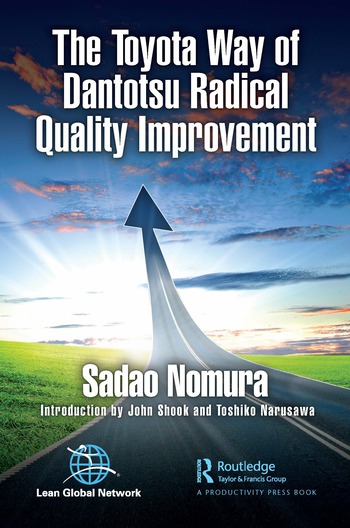Dear Gemba Coach,
We have a standard gemba walk for supervisors to check their areas every morning. I’ve noticed that after a while, they tick the box without really looking. Should I change the standard?
Probably not – you might want to change your mind about standards instead! The deeper question is what are we trying to do? Are we trying to 1/ have the supervisor check every process parameter in their area? Or, 2/ do we intend to help the supervisor grow in his or her job?
If your intention is to make sure the process is controlled, it makes sense to draw up a list of control points and ask supervisors to make sure they’re all good every morning. In fact, if the supervisor were a robot, it would work really well – the robot would automatically check every parameter, without being distracted or bored, and notify without fail if anything is out of standard.
As opposed to machines, humans habituate. As with most animals, response to any stimulus will decrease with repetition, just as you might catch a new ringtone in your environment, and then forget about it. Distracting at first, but then you get used to it and pay it less and less attention – and as a result, respond less and less.
Habituation is particularly quick when frequency is high, intensity is low, and change is slow – exactly what happens at any workplace on a day-to-day basis.
We ask people to check processes to look for signs of divergence and to respond faster, but the very way that we ask them defeats the purpose. The problem with habituation is that even when something does go wrong – the truck didn’t show up, the dial is at the wrong setting – the mind covers it up and simply ignores it. It happens to all of us; we thought we put the keys in their usual place …
Furthermore, there is a strong incentive not too look too closely at workplace processes, because the usual instruction from management is “good news only;” please reassure me you’ve got everything under control and that all is going well. And of course, we’re happy to comply, “All okay, boss!”
On the other hand, if our intention is to develop supervisors in their job we will look at the gemba walk very differently.
Tips for Keeping Gemba Walks Fresh
Rather than follow a set path, first we need to look for bad news. Humans are natural hunter-gatherers and problem solvers – so send them on a quest for the bad news. And yes, in order to spot bad news, you do need checklists and standards. But now, the person is in the driver’s seat – they can let their attention be free to look at operations without the blinding frame of the standard walk.
Because workplaces are large and our attention limited, we risk ignoring systematically some areas, which is why we can imagine a kamishibai system of daily reminders to go and check this or that regularly – hunting for bad news. Here’s Cyril Dané, CEO of AIO, a company that teaches the automotive industry how to make karakuri, with his own gemba walk kamishibai:
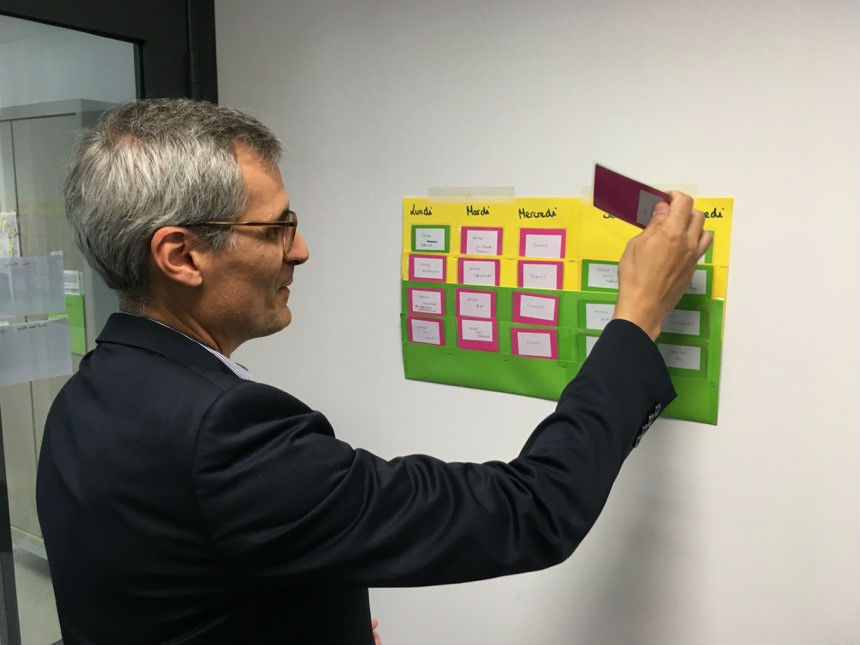
How to keep gemba walks fresh and avoid habituation? Working with several lean leaders, we’ve come to think that:
- Start with lead-time control: what is being delivered on time and what is late, particularly due to quality issues, and focus on the problem.
- Go to the gemba with the management team to look at the situation and try to see what went wrong with work conditions.
- With a possible cause in mind, ask each department head to check the same activity in their departments – how repeatable is it, how well maintained are the standards.
- Then the leader moves on to one area according to schedule to discuss 5S efforts, problem solving, and suggestions with the local manager.
Habituation is an inescapable part of life – it’s the automatic part of learning. Any system that is too rigid will eventually defeat its own purpose as the brain interprets it as “move along, there’s nothing to see.” On the other hand, just management by walking around without specific control points in mind is meaningless. Curiosity and responsibility are also very human drivers.
The radical shift in perspective lies in abandoning the notion of auditing the process in order to check it and correct it, using people to do so. And adopting the idea of having key points to have deeper conversations with the people who do the work themselves. Here are some examples:
The lead time control board:
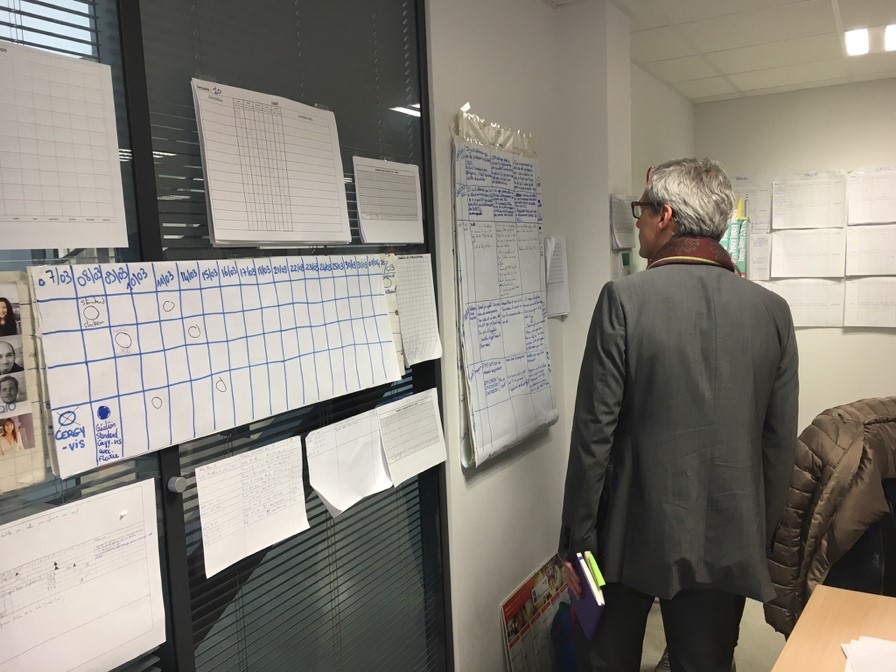
The problem-solving board:
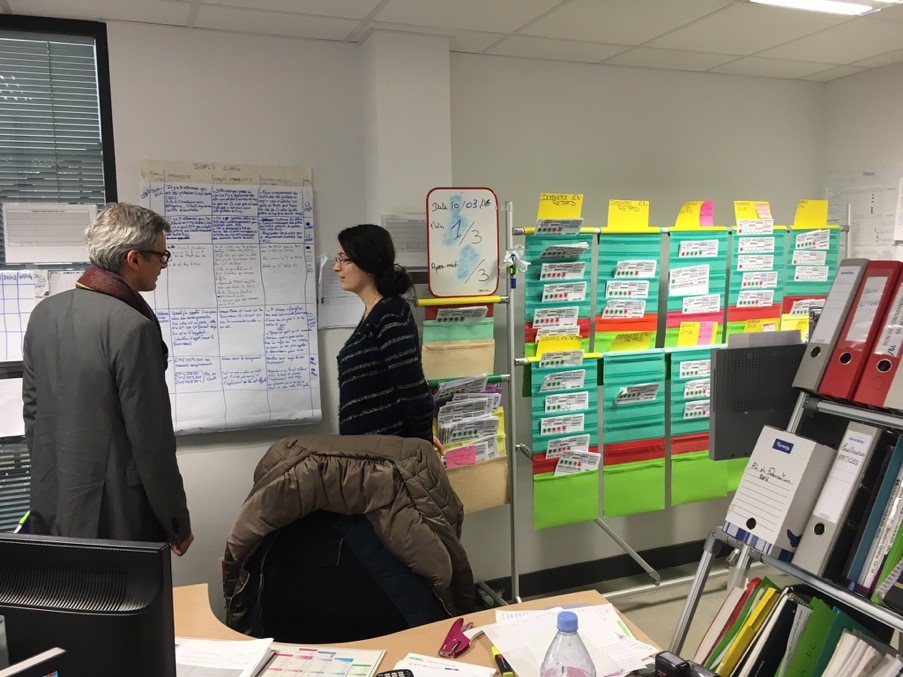
Quality circle activities:
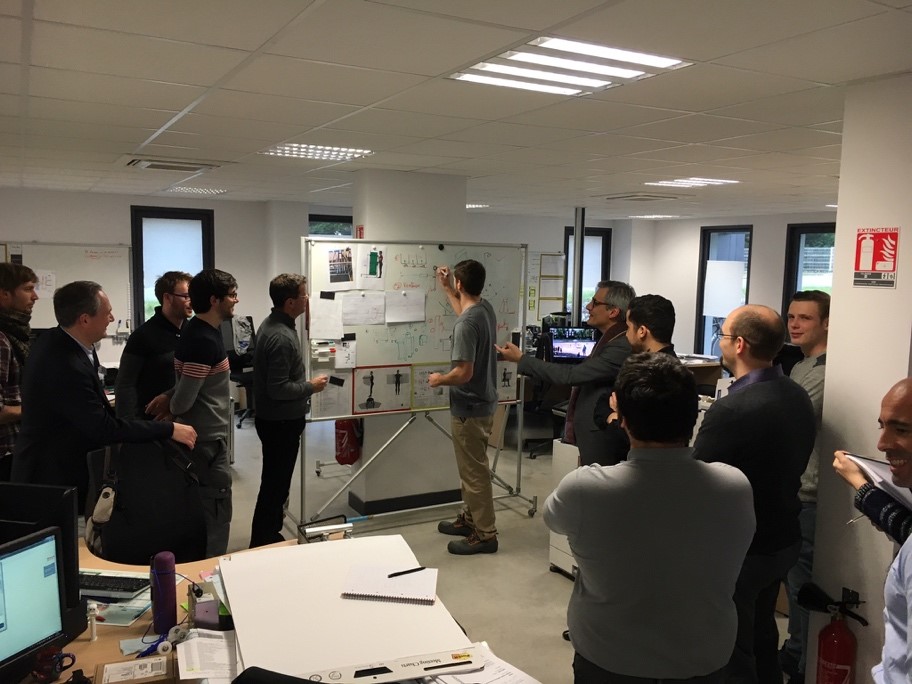
The suggestions board:
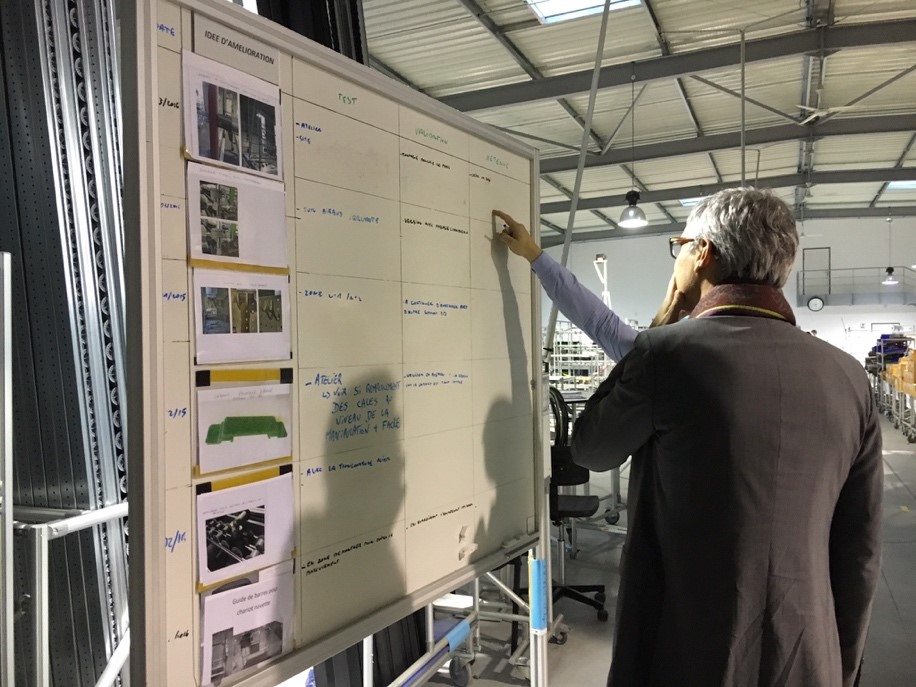
The obeya:
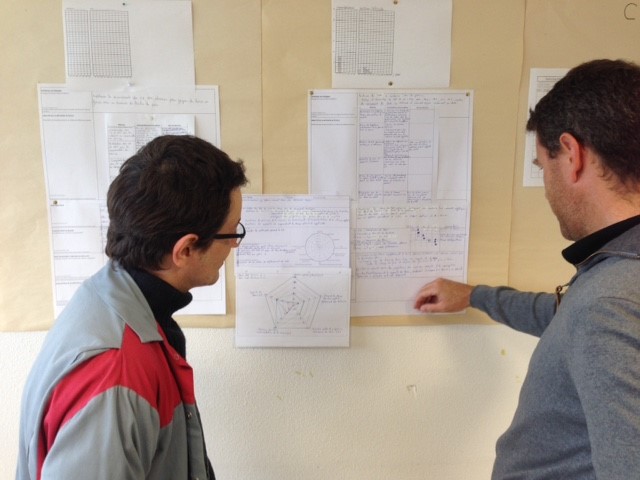
Beyond Stupid
And using these visual spaces as the origins for good discussion, go back to the gemba for good observations and good prevention.
Having a standard in terms of understanding control points and discussion spaces is a good thing. Interpreting a standard in terms of forcing the supervisor to check the same things in the same order every day is beyond stupid – it’s cruel. We need to respect human nature and create work environments that are intuitive and fun for the human mind, not treat people as robots following instructions line by line, in order to deepen our understanding of the work conditions for the people themselves and develop their sense of responsibility, judgment, insight, and initiative.
The point of standards is to make work reliable because it’s repeatable. We need to figure out what needs to be repeatable first (the thinking, not the checking) before we think up standards. So rather than changing your standards, I’d suggest you change your mind about standards – and about gemba walks.





